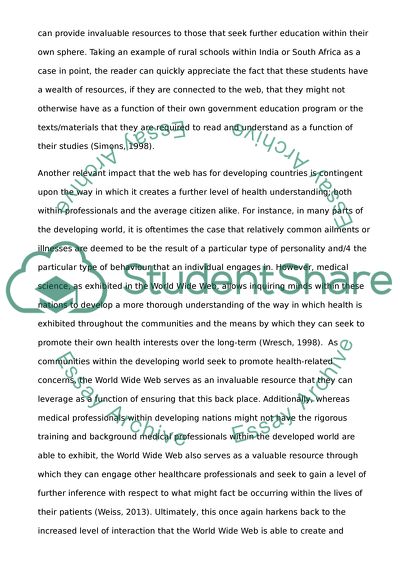Cite this document
(Developing Nations and the World Wide Web Term Paper - 1, n.d.)
Developing Nations and the World Wide Web Term Paper - 1. Retrieved from https://studentshare.org/sociology/1654555-timed-essay
Developing Nations and the World Wide Web Term Paper - 1. Retrieved from https://studentshare.org/sociology/1654555-timed-essay
(Developing Nations and the World Wide Web Term Paper - 1)
Developing Nations and the World Wide Web Term Paper - 1. https://studentshare.org/sociology/1654555-timed-essay.
Developing Nations and the World Wide Web Term Paper - 1. https://studentshare.org/sociology/1654555-timed-essay.
“Developing Nations and the World Wide Web Term Paper - 1”, n.d. https://studentshare.org/sociology/1654555-timed-essay.


